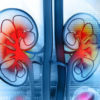Indigestion Treatment Near You in New Jersey
 Almost everybody experiences indigestion at some point in their lives. When it becomes a recurring problem, however, people can find that their quality of life is hampered by frequent discomfort and difficulties with eating. Bergen Medical Associates is one of northern New Jersey’s leaders in comprehensive gastroenterology care, with a team of over 40 board-certified practitioners. Learn more about the diagnosis and indigestion treatment we offer near you in New Jersey.
Almost everybody experiences indigestion at some point in their lives. When it becomes a recurring problem, however, people can find that their quality of life is hampered by frequent discomfort and difficulties with eating. Bergen Medical Associates is one of northern New Jersey’s leaders in comprehensive gastroenterology care, with a team of over 40 board-certified practitioners. Learn more about the diagnosis and indigestion treatment we offer near you in New Jersey.
What Is Indigestion?
Indigestion, also called dyspepsia, is pain or general discomfort in the abdomen. The discomfort commonly starts after eating and is caused by problems with digestion. Indigestion can feel similar to heartburn, and the two conditions are often linked. However, they are not the same. While heartburn causes pain in the chest, indigestion affects the upper belly.
Most people experience occasional indigestion, which usually goes away quickly. Often, it has no clear cause. For others, however, indigestion occurs often enough to affect everyday life. This is known as functional indigestion. Functional indigestion may indicate a serious underlying digestive condition and should be discussed with a doctor. Even if the cause is benign, a gastroenterologist can help the patient avoid discomfort for a higher quality of life.
What Are the Symptoms of Indigestion?
Indigestion symptoms appear within minutes to a few hours after a meal. They are most strongly characterized by mild to severe discomfort in the upper belly. Every person’s experience of indigestion is different, however. Symptoms vary between individuals and even between instances of indigestion. Common symptoms of indigestion include:
- Pain in the upper belly
- A burning sensation in the upper belly or chest
- Feeling bloated or uncomfortably full
- Feeling full sooner than expected
- Frequent belching
- Loud stomach gurgling
- Nausea or vomiting
- Diarrhea
- Gas
Most cases of indigestion are occasional, meaning that they occur only rarely and briefly. Some people experience functional indigestion that occurs after almost every meal. While acute indigestion may not need medical treatment, chronic issues can be signs of a serious condition that requires diagnosis. Patients should always speak with a doctor about any new symptoms affecting their digestion.
What Causes Indigestion?
The most common cause of indigestion is stomach acid. If there is too much stomach acid, or if it enters the esophagus or small intestine, it can cause irritation and a burning sensation. Other cases of indigestion are the result of gas or other changes in digestive function. Lifestyle choices can also contribute to indigestion, including:
- Overeating
- Eating too quickly
- Eating fatty, greasy, acidic, or spicy foods
- Drinking caffeinated, alcoholic, or carbonated beverages
- Having high stress levels or emotional distress
- Taking certain antibiotics and pain relief medications
Other cases of indigestion, especially functional indigestion, are caused by an underlying gastrointestinal condition. Conditions that can cause indigestion include:
- Gastroesophageal reflux disease (GERD)
- Gluten or lactose intolerance
- Peptic or intestinal ulcers
- Bacterial infections
- Gallstones
- Inflammation of the stomach, gallbladder, or pancreas
- Irritable bowel syndrome (IBS)
- Stomach cancer
Finally, certain health and lifestyle factors may increase a person’s risk of occasional or functional indigestion. Patients with eating disorders or food intolerances are more likely to struggle with indigestion, as are patients with chronic stress, anxiety, or depression. Patients who carry extra weight around the abdomen due to obesity or pregnancy may also be at risk of indigestion.
How Is Indigestion Diagnosed?
Indigestion is typically easy to identify with a description of its symptoms. Diagnostic tests are not used to diagnose indigestion itself, but rather to pinpoint its underlying cause if there is one. This allows the gastroenterologist to plan a treatment that combats the condition at its source. Tests that may be used for indigestion include:
- Blood tests: Blood tests may identify signs of stomach cancer, which is a rare but serious cause of indigestion.
- Stool and breath tests: These are used to check for H. pylori and other stomach bacteria that may be causing an infection.
- Stomach biopsy: Inflammation and bacterial infections can also be identified by taking a tissue sample from the stomach lining, called a biopsy.
- Medical imaging: An X-ray or ultrasound may be taken of the stomach and small intestine to look for abnormal growths and blockages.
- Upper endoscopy: Using a flexible tube-shaped instrument with a camera, doctors can examine the esophagus and stomach lining for ulcers and inflammation.
By learning more about the patient’s health and ruling out potential causes, gastroenterologists hope to arrive at a conclusive diagnosis. Information gained through testing is used to design a personalized treatment plan to manage uncomfortable symptoms and, if possible, address their underlying cause.
What Are Indigestion Treatments?
If indigestion is caused by an underlying condition, then the patient’s care will focus on treating it. If there is no identifiable cause, then the gastroenterologist will develop a plan to control and reduce uncomfortable symptoms. Indigestion management can involve multiple strategies, such as:
- Dietary adjustments: The patient may reduce indigestion by avoiding foods that are spicy, fatty, or acidic, and by avoiding carbonated or caffeinated beverages.
- Weight loss: Being overweight or obese creates pressure around the abdomen, making indigestion more likely. Weight loss can reduce how often indigestion occurs.
- Medication adjustments: Certain over-the-counter medications and herbal supplements can irritate the stomach lining. Patients may discuss alternatives with their healthcare provider.
- H2 blockers: These reduce stomach acid production by blocking histamine signals. They can help manage or prevent indigestion in the short term but may lose effectiveness over time.
- Prokinetic agents: These help food and liquids move through the digestive system more quickly, reducing the amount of time they spend in the stomach for shorter bouts of indigestion.
- Antibiotics: If indigestion is caused by a bacterial infection, antibiotics may clear the infection to reduce or eliminate symptoms of indigestion.
Find Indigestion Treatment Near You in New Jersey
If you struggle with frequent indigestion, do not hesitate to seek relief. Bergen Medical Associates offers state-of-the-art indigestion treatment near you in northern New Jersey. Our leading gastroenterologists serve the region from six convenient locations, providing comprehensive care for all kinds of gastrointestinal needs and disorders. To learn more or begin treatment, request an appointment today. We have locations in Emerson, Montvale, Northvale, Paramus, and Ridgewood, NJ, making it easy to find treatment near you.












